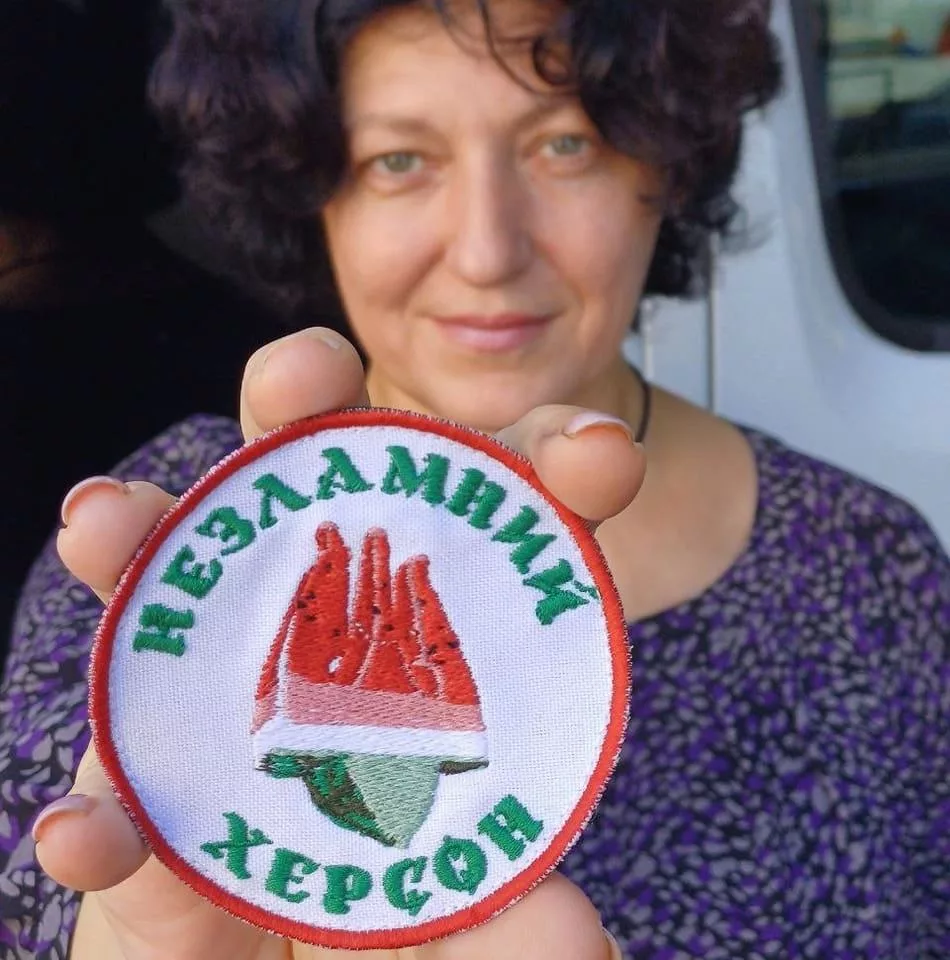November 11 became a significant date for the history of Kherson. After all, on this day in 2022, the Armed Forces of Ukraine liberated the city from the Russian invaders. On such a memorable and important date for Kherson, we spoke with Natalia Shatilova, acting head of the Dnipro district of the organization of the Red Cross of Ukraine in the city of Kherson.
The woman lived in Kherson all the time – during the occupation until liberation, actively helped those who needed it, went to resistance rallies and proved: Kherson is Ukraine! About the Ukrainian resistance, volunteering in the conditions of a full-scale war, the experience of being in a pre-trial detention center created by the Russians and what Kherson is living now – in this interview.
Natalia shares:
“I worked at the Red Cross call center because the organization continued to work within its mandate. It was terrible, because there was no way to deliver literally anything to the region, to the occupied part: neither medicines nor products were delivered centrally. There were several cases when international organizations wanted to come to us (for example, the UN, the International Red Cross), they were ready to negotiate with the occupiers, to explain to them that the cargo was humanitarian. According to humanitarian law, we understand that those who occupy the territory are obliged to provide this territory for a normal quality of life.
Unfortunately, not a single cargo, not a single convoy that tried to be transported to the region was allowed. It happened that for a month the cargo of the UN (it was four trucks of 20 tons) rolled around the perimeter, along the border of the gray zone, trying to enter the occupation zone in order to bring medicine. There was no such possibility; the occupiers simply did not give it. Humanitarian crisis regarding medicines arose very quickly, because it also concerned the necessary documents, including those, for people living with chronic diseases, with diabetes. If a person does not receive these medicines, it is fatal.
People need to take these medicines every day, but they were not available in Kherson, they ran out, nobody could not bring them, and people called every day: from Kakhovka, from Henichesk, from areas where there was nothing at all… and you just know, that information, which you hear, but understand that you cannot help in any way. Even if there was something in Kherson, there was no way to provide it, because at that time it was not realistic to leave the city.
A little later, our volunteers, the response squad, started driving. They began to take people away from where the front line passed, and people remained in houses and villages and could not leave on their own. There was constant shelling there, so they agreed, somehow drove through there and tried to take away at least women, children and elderly people. So that you understand, they drove them out with a Ford passenger car. If there was a good luck, 30 mothers and children were picked up by this Ford. They were standing in it for 5 hours. The drivers tried to pick up as many people as possible, because they were not allowed to enter the second time. Our volunteers were constantly completely undressed, searched for tattoos, checked, but they would come anyway, because there was such an opportunity to come and help children and mothers, people with disabilities to get away from shelling.”
